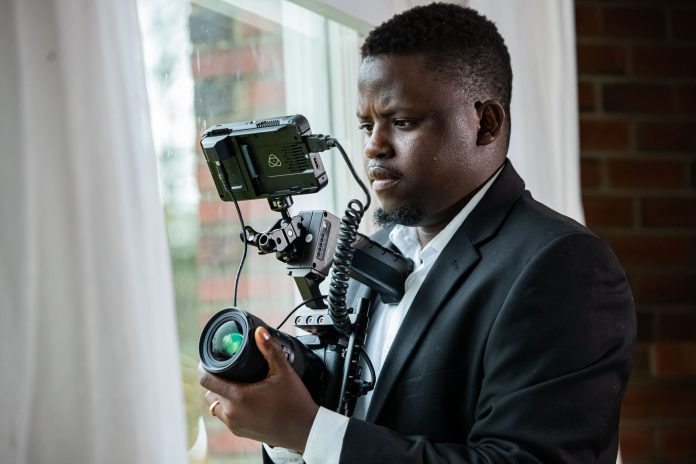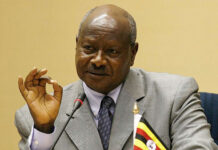Jordan Sekatawa: Telling the right Pan-African stories through filmmaking
This US-based Ugandan filmmaker talks about living in the diaspora, Black Oppression and his forthcoming film project, ‘Uganda We Rise’.
Even beyond Africa, the entire black race has over the years been painted with the wrong brushes, such that a very terrible perception of our lifestyle, culture, history, and future lies in the heart of the world. Such that the ills that exist on the continent Africa seem to steal more headlines across the globe than the resplendence of her people. This is exactly what this US-based Ugandan filmmaker, Jordan Sekatawa aims to correct with his God-given gift of storytelling.
“People are not educated. What I mean is that so many negative stories have been told and it’s time to shed positive light on Africa. That’s one of the reasons I’m making the ‘Uganda We Rise’ film,” he said to me over Zoom.
The time difference between his country of residence and mine spans six hours but that didn’t in any way hinder how smoothly and rapidly we connected during our conversation on the basis of being African. This subtle feeling of love and brotherhood that black people originally have for each other is not one that most international mainstream and local media portray all too often.
“You see, the media is very strong. It’s a really powerful segment of society. You see, the reality is that most people only believe the things that they see on TV. If it is not on TV, then it doesn’t exist to them. And so whoever controls the media controls the beliefs of many people.”
As he spoke, I could see him gesticulate in sync with his every word as if to help me understand them better. This is Jordan, born a storyteller.
“My whole thing has been storytelling. Because the truth is that stories are how we learn. Stories are the only way we know the kind of life other people live without actually living it. So it has always been about telling stories for me.”
Born in Uganda but relocated to the United States at the age of sixteen, Jordan used to enjoy having white visitors who wanted to know what it felt like living in an African home stop by their house in the US. Then he would write songs about his experiences with them and make amateur beats; a ritual that would later lead him into music production, songwriting, music video directing and storytelling generally.
“I began with music production. You know, getting beats off YouTube and using FL Studio to enhance them. And then, I used to write songs. That was how I started writing. But I noticed that my writings were more than songs. They were stories (laughs). And then these songs needed videos and that was how I began shooting music videos.”
What happened to the music? Do you still produce and write songs?
No, I do not do music production anymore. That part of me has just faded away. Now, it’s all about film for me.
“I need the world to see that Ugandans are hardworking and not lazy or any other false story that any other person might portray.”
You’ve been pulling a lot of strings for ‘Uganda We Rise’. What exactly is it about?
Yeah. I started that project when I visited Uganda again after ten years for my traditional marriage. I had left Uganda for the United States when I was sixteen and you can imagine how it felt coming back to the country ten years after at twenty-six. Everything had changed. All my friends were all grown-up, had families of their own and earning a living. And then, the images and idea of Uganda I had before the visit was very different from what I saw. On TV back in the US, I had the image of Uganda being a land that needed help, aid and you know, all the bad images. But when I went back, I saw a different thing. People were working hard and doing very well. And this is exactly what the movie is supposed to portray. Africa has a lot of potential and the world needs to see this.
Many believe that the whole concept of black oppression is a conspiracy theory and that it’s all for politics. What do you think?
Thank you for this question, Itty. You see, the media is very strong. It’s a really powerful segment of society. You see, the reality is that most people only believe the things that they see on TV. If it is not on TV, then it doesn’t exist to them. And so whoever controls the media controls the beliefs of many people. In the US, there’s an undeniable bias against coloured people. The thing with me is that when I see things on TV, I try to think about how it relates to me and what I can do to make a change. Obviously, the death of George Floyd brought a lot of awareness and light to this racism and it makes us see that what most people lack is education. People are not educated. What I mean is that so many negative stories have been told and it’s time to shed positive light on Africa. That’s one of the reasons I’m making the Uganda We Rise film. Dark skinned people really get attacked and hit for being black. It’s real.
What are your expectations for the project?
I want people to watch the film and rethink the potential of Uganda. Of course, there’s the political and economic issues in the country. And every country has those. I need the world to see that Ugandans are hardworking and not lazy or any other false story that any other person might portray.
Have you ever had any Nigerian dish?
Yes, yes, I have. I think I’ve had the jollof rice.
Was it Nigerian jollof rice?
I was told it was (laughs).
Was it delicious?
Yes, yes, it was very good.
Then it was Nigerian jollof rice.
(Prolonged laughter).






